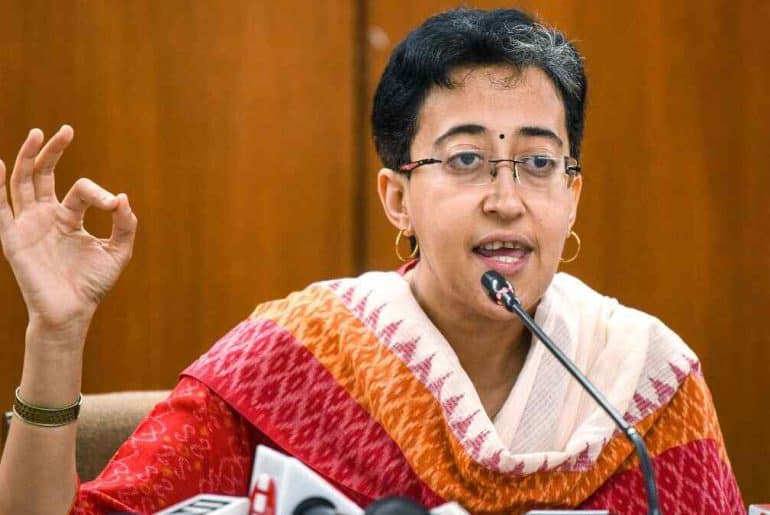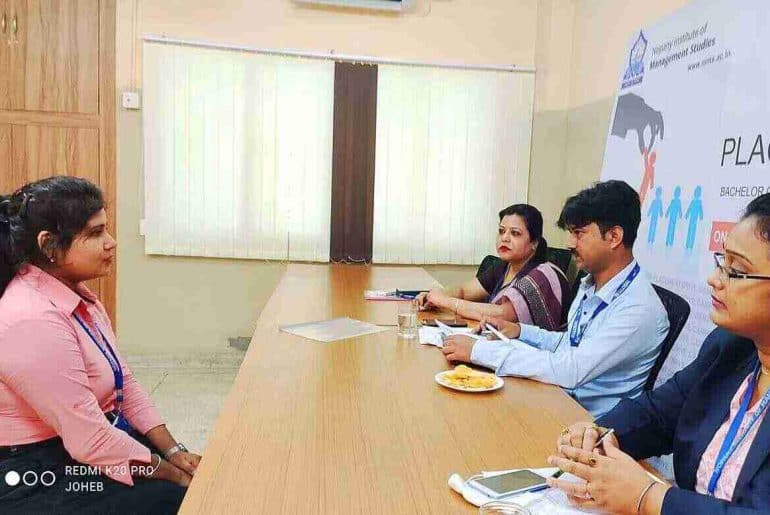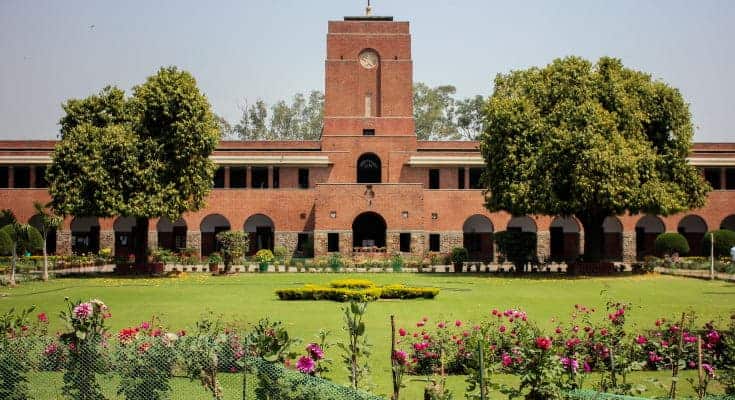As DU gears up for the fest season, the supposed fortress of security seems to crumble each year. Are women’s colleges equipped with the required security measures?
For the past few years, Delhi University (DU) has consistently witnessed incidents of unwarranted male trespassers into women’s colleges every time there is a fest or any event for that matter, with students being sexually harassed, catcalled, and their safe spaces violated. In light of such incidents, the University issued an advisory with guidelines to be followed by all colleges during events likely to be attended by outsiders. Between April 2023 and January 2024, the notifications have been updated thrice ahead of the upcoming college fest season.
Surely, such an advisory may appear to be the need of the hour and perhaps even reassuring, but is it the case that the University has finally recognized the persistence of such pressing issues, or is the advisory, just like security in most women’s colleges, merely performative? Isn’t it high time that the University’s administration, instead of issuing such performative guidelines, actually addressed the larger issue of male entitlement, beyond just ensuring their students’ safety? College spaces, be it women’s colleges or co-educational spaces, should certainly not be places where women (or anyone for that matter) live in a sense of fear, apart from obviously the external world beyond college boundaries.
It is also important to note that some of the security measures, for instance, the installation of CCTVs, pre-registration through Google Forms, and deployment of security personnel, have already been in place in many colleges, and yet there have been repeated violations. Most instances have been when the ones who “lawfully” entered the college premises became perpetrators of assault. So, a No Objection Certificate (NOC) is completely ineffective when it comes to the “male gaze” and entitlement towards women’s spaces in a patriarchal set-up.
“Because our college restricted male entry this year, apart from the participants, it did make the fest safer than last year, where a lot of chaos had ensued with guys passing lewd remarks at female students performing during the dance competition. Although such incidents didn’t take place this year, I believe restricting male entry is just an instinctive response to a much larger problem, that is, patriarchy, which is so deeply rooted in our society. Such measures end up putting the onus on women to protect themselves, as apparently “boys will be boys.” If the administration is unable to restrict students inside the campus, their immediate response is to just stop male entry. We need some long-term solutions to such problems, and sensitization of not just students but even the faculty needs to take place to uproot the actual cause of this problem.”
-said a student from Janki Devi Memorial College.
Students believe that the advisory is just the bare minimum, and the larger problem needs to be taken into account while ensuring security in women’s spaces.
Google Form registrations certainly do not amount to character screenings; thus, the University has no appropriate solution to this issue. At the college’s annual fest last year, the administration, as a security measure, made it mandatory for every male attendee to have a pass with a particular student’s name on it to ensure that they were invited by any of the students. Also, it was ensured that no guys entered the fest in groups. It’d be great if there was security present not just at the gates but inside the college, where a large crowd usually gathers, because that’s where fights usually break out. It would have been great if the University advisory came with a preface condemning the actions that took place not just at IPCW last year but what has been happening in women’s colleges almost every year. They need to realize that such incidents mostly just take place in women’s colleges because patriarchy allows men to feel entitled to women’s spaces and men fear other men, rather than respecting women as equal human beings.”
-remarked a student from Maitreyi College when asked about safety in women’s colleges ahead of the fest season.
A student from Indraprastha College for Women (IPCW) spoke about how the college’s environment has changed significantly since the unfortunate incident at last year’s fest.
The college administration, just like the administration in almost every DU college, loves to put the entire blame on the student body, despite the Student Council being a mostly performative entity in our college now. Since the college is busy with its centennial celebrations, we are not even sure if the annual fest ‘Shruti’ will even take place this year. The advisory issued by the University just goes on to show that the onus of protection is always going to be put upon women rather than holding the perpetrators accountable. Despite there being extensive measures like Google Form registrations and screening of bags at the gate, they were certainly not enough to prevent overcrowding and its aftermath. Our college did not have enough security to handle such a large crowd, and sadly, it took the University that incident and many more past occurrences in women’s colleges to even issue an advisory, which was also the bare minimum, to say the least.”
Thus, the question is: are women’s colleges even equipped with effective security ahead of the fest season, or is just locking up women and not questioning the root cause of the problem, which is patriarchy, going to be the immediate response from the administration in most colleges?
Read Also: Who Protects Our ‘Safe’ Spaces?
Featured Image Credits: Hindustan Times
Gauri Garg










